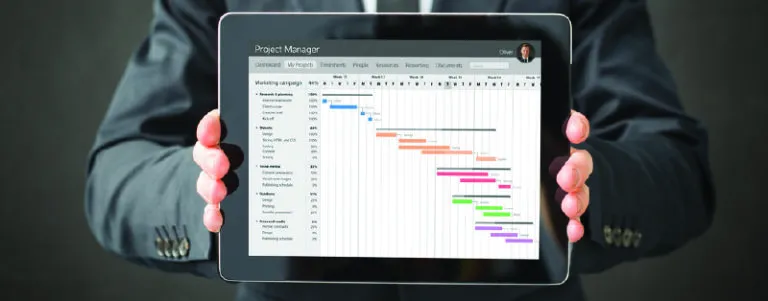Agile Project Management: Definition, Methodology and Best Practices

Projects that are undertaken by an organization need to be successful. Analysing what went wrong or giving excuses after a project has failed does not make the cut. Apart from being a major discouragement, failed projects also contribute to loss of money, the recovery of which can be a huge challenge. This is why the following project management methodologies are important. With these methodologies, it is possible to follow a disciplined, standardized approach to projects which further reduces the risk of failure.
Today, there are several project management methodologies that businesses can choose from. However, when you really get into some research on which is the best project management methodology, one term seems to crop up time and again – agile project management or agile project management methodology. There is a lot of buzz around the benefits of following agile project management methodology. But what exactly is agile project management and how do you know whether it will help your organization or not?
There are 12 principles of project management that everyone should know. These principles of project management define parameters and processes and what works and what may not work. Knowing and understanding these principles of project management can be highly useful for the success of any project. Herein, pursuing a course in project management can be very helpful. It will make you well-versed in the principles of project management. Once you obtain a PMP certification, it will be certified that you have an in-depth understanding of the principles of project management and other related aspects.
The Origin of IT Agile Project Management
IT projects have always been known to go off the rails. History underlines two consistent fault areas in IT projects.
● Lack of a formal overarching management methodology
● Application of a methodology that is not suited to the project
The origin of agile project management lies in the second category. A business may have implemented a certain project management methodology to ensure better success rates for the IT projects. However, the methodology may have been so rigid that it would have led to what is known as “paralysis by analysis”. The procedures would have demanded demarcation lines, step-based progressions, and unique role and responsibilities and other fixed aspects which may have limited the capacity and hampered the overall productivity.
While a step-by-step approach may work in certain industries and sectors, the software development industry cannot work on such rigid principles. This is why there was a need to develop a new system which ensures development in a controlled yet flexible manner. This is what led to the development of agile project management methodology. It focuses on iterating through product requirements, continuous improvement, responding to dynamic environments while taking the team together and not depending on an individual alone.
Agile vs. Waterfall Project Management
The roots of agile project management are in iterative project management. Agile project management methodology is very flexible and interactive. In this mode, the requirements and overall plan are updated regularly in order to meet the changing requirements across the board. The traditional project management practice is known as “waterfall” project management. It has several drawbacks. For instance, waterfall project management cannot handle complex projects. Also, in many cases, the planning happens a lot in advance which means that if there is any change along the process, then the product can become ineffective or only partially effective. This is why it is important to understand the difference between agile vs. waterfall project management.
When compared to this, agile project management methodology modules are developed over a short period of time. This is also called a sprint. Each sprint lasts two or three weeks and when it is implemented, feedback is collected from users. This feedback helps in identifying shortcomings and then requirements are built into the development’s next sprint. The comparison between agile vs. waterfall is that agile is like a relay race and waterfall is like a traditional race. With this, you must have gotten a fair idea about the difference between agile and waterfall project management.
How Scrum Works with Agile Project Management
Scrum is a subset of the agile approach. It is a set of governing principles and tools that help in fast and responsive decision-making. The name Scrum comes from a player positioning move within the game of Rugby. The focus of Scrum is on generating and managing fast conclusions to short-term activities. This is a short 15-minute meeting and is facilitated by the “Scrum Master.” The role of Scrum master is functional and not hierarchical. They do not lead exclusively, rather encourage and act as those who clear roadblocks. This is also one major difference between agile vs. waterfall project management.
All these aspects are included in the exhaustive project management certification courses.
Agile Iterative Development Overview
While the traditional phases of a project are maintained with agile project management, in each phase, the activity level may rise or fall. An agile Scrum does the following:
● Defines the framework of project management
● Makes way for high involvement of user and customer
● Leads to continuous improvement
● Delivers iteratively and incrementally
● Best for projects with high uncertainty
A PMP certification offers a lot of benefits for those who want to advance their career in this domain and land their dream job. Emeritus India offers various courses in project management.





